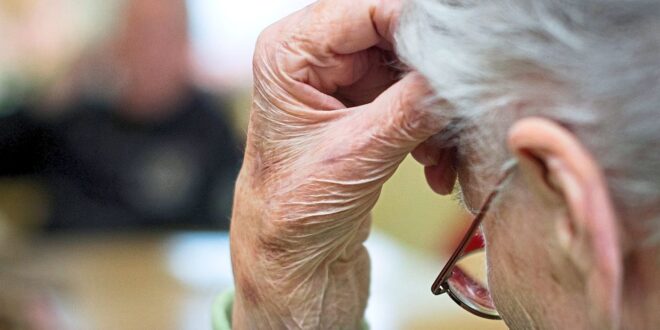KLANG: Depression, linked to menopause or hormonal imbalance, can emerge in elderly women even after a decade or more after they have stopped menstruating.
However, many remain oblivious as to why they are feeling emotionally down and do not seek the necessary intervention, experts say.
Consultant psychiatrist Datuk Dr Andrew Mohanraj said there is a wide misconception that depression in elderly women is associated with empty nest syndrome, loneliness and post-retirement blues.
“Because of this, the root cause of the source of depression, which is the after-effects of menopause, is sidetracked.
“To make matters worse culturally, elderly women in our society are expected to be less vocal, less outgoing and have less social interaction,’’ said Dr Andrew.
He added some people assume that women withdrawing into themselves is a natural process of ageing.
“It is definitely not a natural progression and our society has to be blamed for expecting older women to hide in the shadows,’’ said Dr Andrew adding this societal expectation is also another factor for pushing elderly women into depression.
He said when a postmenopausal woman becomes withdrawn, it is crucial to examine when it started happening and if there were any surrounding factors that could have caused it.
“For some women, there may be a genetic link as their mothers, siblings and aunts could have gone through the same symptoms and emotional trauma even long after menopause,’’ said Dr Andrew.
He added if elderly women undergoing this did not seek intervention or treatment, their golden years would become very empty and sombre.
Dr Andrew said this would be a pity, as senior women would have much to share and pass on to the younger generation, given their experience and wisdom.
“So please seek treatment or intervention by speaking to someone when you are a senior woman who has started feeling depressed or has been depressed since you went into menopause, even if it was years and years ago,’’ added Dr Andrew.
Consultant gynaecologist Dr Surinder Singh said some women generally became depressed, not directly because of menopause, but rather due to the symptoms that accompany it.
“For instance, if they are experiencing severe vasomotor symptoms such as hot flushes and night sweats, which affects their sleeping pattern, it could depress them,’’ said Dr Surinder.
He added women experience various symptoms pre and post-menopause due to the decrease and eventual depletion of estrogen in their system.
The gynaecologist said when a patient comes and tells him she is depressed after menopause, he would look for specific symptoms to determine the nature of the depression.
There could be so many other reasons and some of these women may have a history of depression or conditions such as neuroticism or overthinking, explained Dr Surinder.
“Conditions such as neuroticism or overthinking can activate depression in women who have a history of the condition (depression),’’ he added.
Dr Surinder said if he felt that menopause had a role in a woman’s depression, he would prescribe her with hormone replacement therapy to be taken for a short period of time.
“If she comes back feeling better, then it is indeed hormone-related and if she comes back without any change, then we know that her depression is not hormone or menopause-related,’’ he said.
 BeritaKini.biz Berita Viral Terkini di Malaysia
BeritaKini.biz Berita Viral Terkini di Malaysia





